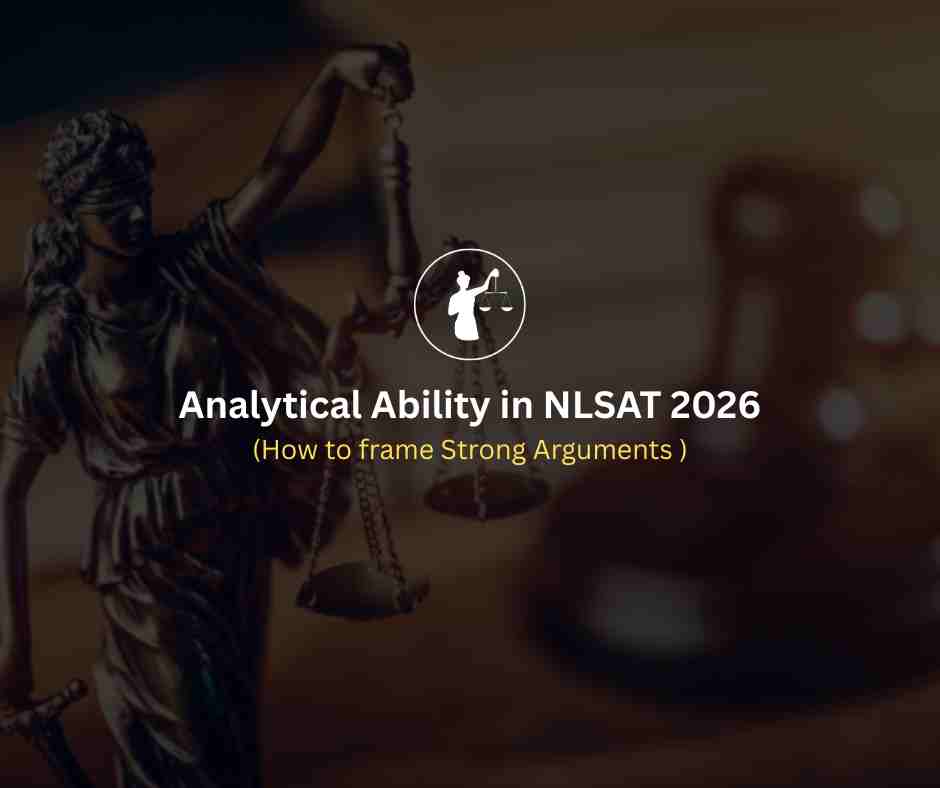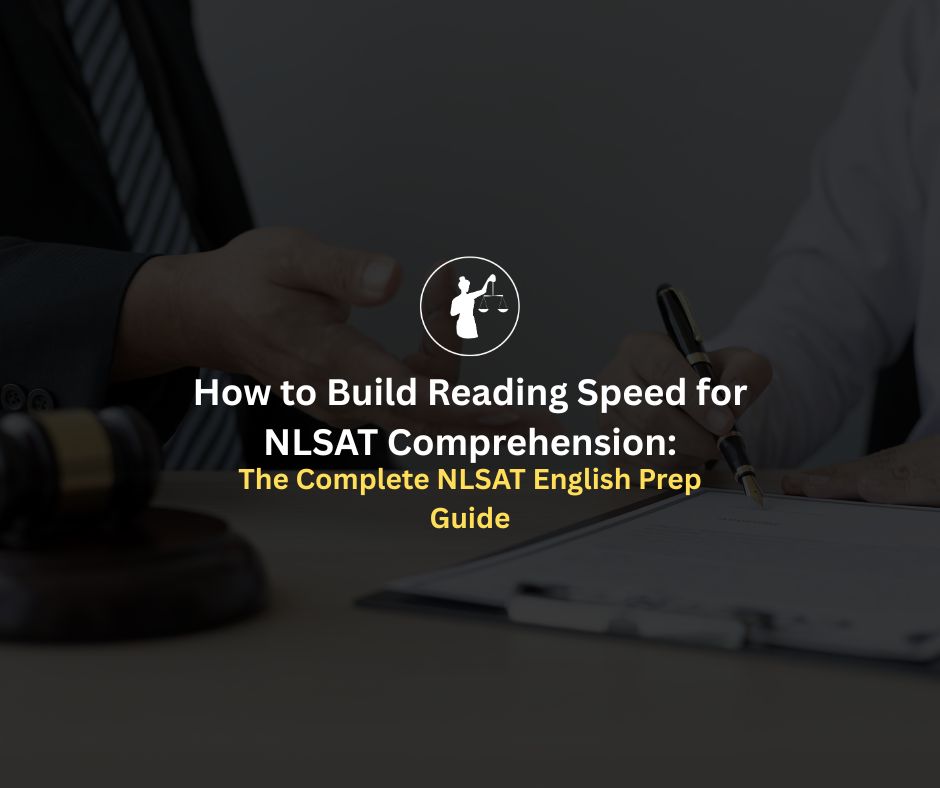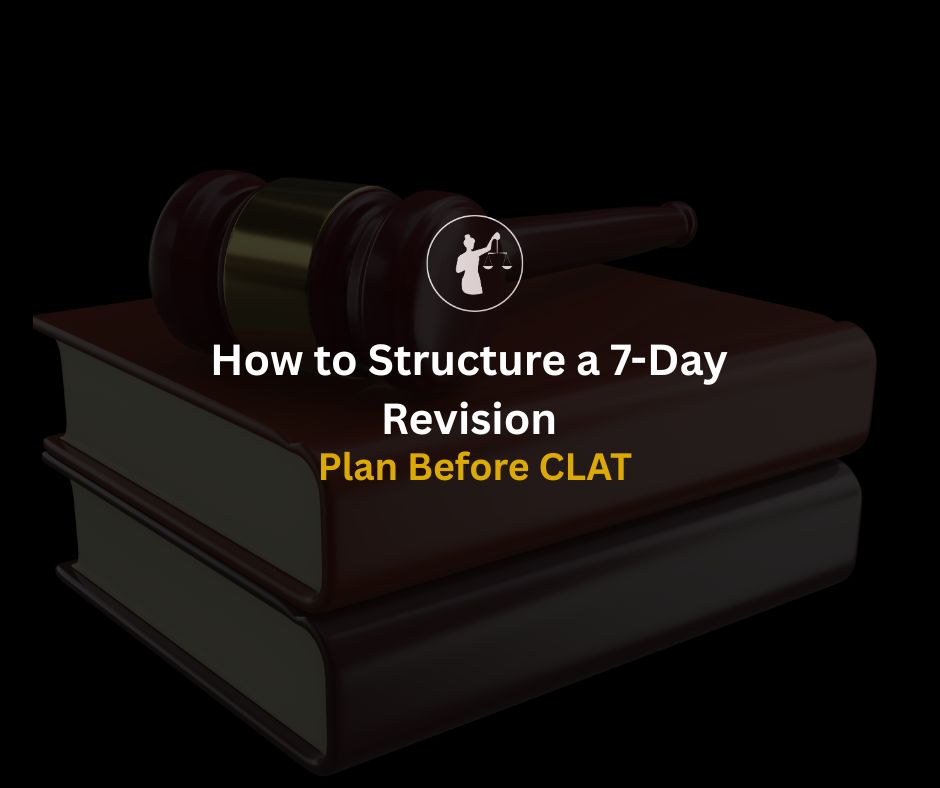
The Analytical Ability Essay in Part B of the NLSAT 2026 plays a pivotal role in assessing a candidate’s reasoning skills, clarity of thought, and ability to present well-structured arguments. Administered as part of the entrance process for the 3-Year LL.B. (Hons.) programme at the National Law School of India University (NLSIU), Bengaluru, this section requires aspirants to demonstrate proficiency in critical analysis and persuasive writing.
In the context of NLSAT 2026, analytical ability refers to a candidate’s competence in:
Dissecting complex socio-legal or political issues
Constructing coherent, logically sound arguments
Evaluating contrasting viewpoints with objectivity
Supporting arguments with relevant examples, principles, or precedents
Communicating ideas in a structured, grammatically correct, and formal style
Read More : NLSAT 2026 Essay Writing Guide
The Analytical Ability essay carries 15 marks
Candidates are required to write one essay of up to 500 words
The essay is evaluated on argumentation, structure, and clarity—not legal knowledge
Writing a compelling analytical essay requires a methodical approach. The recommended structure includes four key components:
1. Introduction (Approximately 60–80 words)
Clearly define the central issue or theme
Present a relevant question or dilemma
Articulate your thesis or core position
Example: The expansion of state regulation over digital platforms has reignited debates on the boundaries of free speech. Should governments be allowed to regulate online content in the interest of public order, or does such regulation encroach upon constitutional freedoms?
2. Main Body (Three Paragraphs | Approximately 300–350 words)
Paragraph 1: Principal Argument
Present the strongest argument supporting your thesis
Substantiate it using a real-world example or logical reasoning
Example: Unregulated government control over digital content may erode democratic accountability. For example, multiple instances of internet shutdowns and censorship in recent years have been criticized for curtailing the right to dissent—an essential component of democracy.
Paragraph 2: Supporting Dimension
Explore another facet of your argument, such as ethical implications, social impact, or constitutional principles
Example: The lack of regulatory oversight for private tech platforms can also undermine user rights. Without transparency mechanisms, these companies may arbitrarily remove content or amplify misinformation, highlighting the need for a balanced framework.
Paragraph 3: Addressing Counter Arguments
Present a reasonable opposing viewpoint
Offer a rebuttal to strengthen your original argument
Example: Proponents of regulation argue that it is necessary to curb hate speech and misinformation. While this objective is valid, any regulation must be narrowly tailored and subject to judicial review to avoid misuse.
3. Conclusion (Approximately 50–70 words)
Reiterate your central argument
Summarize key insights
Propose a balanced resolution or a forward-looking recommendation
Example: While content regulation may serve legitimate interests, unchecked censorship risks undermining democratic values. A rights-based regulatory framework that ensures transparency and protects individual freedoms is essential to strike the right balance.
Read More : NLSAT 2026 English: Key Comprehension Topics & Tools
Apply the “Issue Position Reasoning Example” Method
State the issue clearly
Take a reasoned position
Justify with reasoning and reinforce with examples
Ensure Balance and Neutrality
Avoid emotionally charged language
Acknowledge and address alternative viewpoints
Use Real-World References (only for Essay)
Include examples from landmark judgments, news reports, or constitutional principles
Avoid Technical Legal Jargon
The focus is on clarity and logic, not advanced legal knowledge
Maintain Structural Consistency
Ensure all essays follow a logical progression with distinct introduction, body, and conclusion
Should the Right to Privacy override National Security Concerns?
Is the Uniform Civil Code a Path to Equality or Cultural Imposition?
Social Media Regulation: Necessary Oversight or Democratic Threat?
Do Protests Strengthen or Weaken Democratic Institutions?
Judicial Activism: Essential Check or Overreach?
The Analytical Ability section of NLSAT 2026 is designed to evaluate not just what candidates know, but how they think. Success in this section depends on a candidate’s ability to reason through complex societal issues, write in a structured and persuasive manner, and engage critically with multiple perspectives. Through regular practice, informed reading, and a structured approach to writing, aspirants can develop the analytical capabilities essential for legal education at NLSIU.





